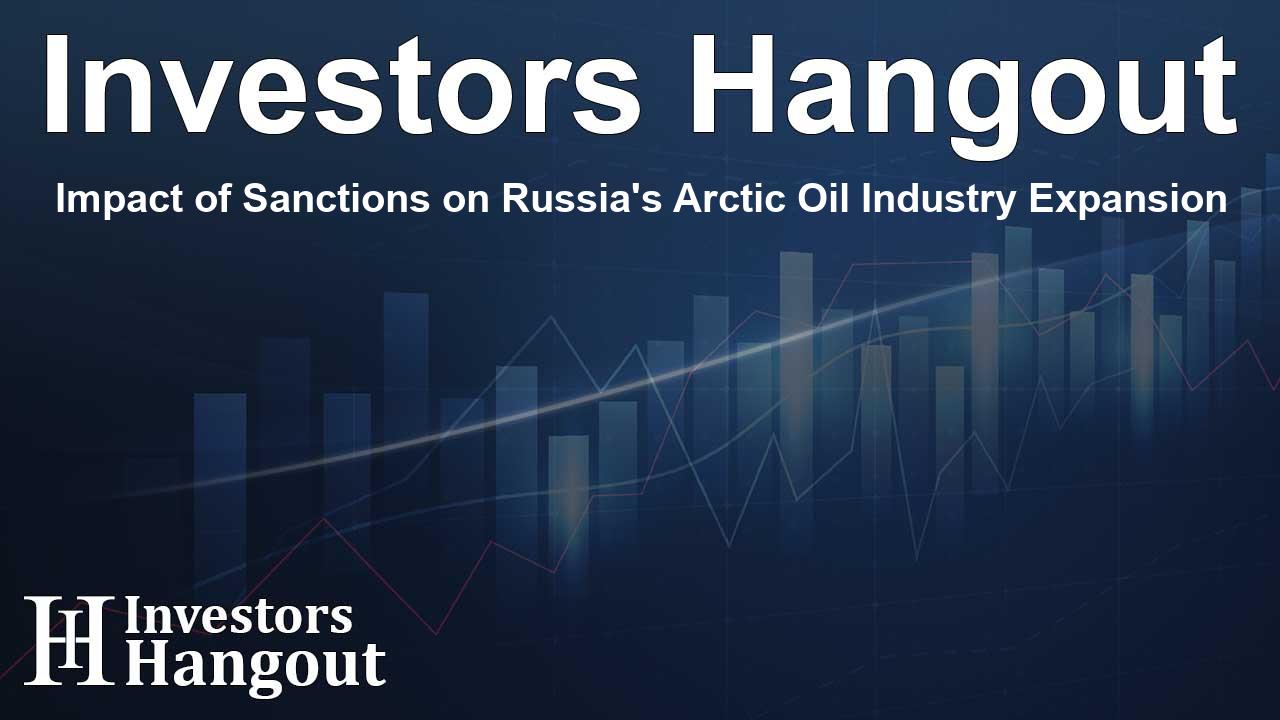Impact of Sanctions on Russia's Arctic Oil Industry Expansion

Overview of Russia's Arctic Oil Landscape
Russia's Arctic oil industry, a significant player in the global oil market, is currently navigating turbulent waters due to recent U.S. sanctions. These restrictions have severely impacted the logistics and transportation aspects of this crucial sector, stranding oil supplies that were once readily accepted by various international buyers.
Sanctions Overview and Their Implications
The latest U.S. sanctions have taken aim at notable oil producers, including Gazprom Neft and Surgutneftegas, alongside targeting 183 vessels involved in transporting Russian crude oil. This strategic decision marks the most rigorous approach to countering Russia's oil sector, aiming to disrupt its flow to global markets.
Impact on Arctic Oil Grades
Reports indicate that all three grades of Russia's Arctic oil—Novy Port, ARCO, and Varandey—are now facing significant disruptions. Each of these grades contributes to an output of approximately 300,000 barrels per day, crucial for meeting the demand in markets like Asia and Europe.
Unique vessels and infrastructure enable the transport of these oil grades, which constitute a significant portion of Russia's seaborne oil exports. The vessels specifically designed for this purpose are not easily replaceable, leaving a critical gap in operations.
Challenges in Shipping and Storage
The sanctions have led to the U.S. imposing restrictions on the Umba and Kola floating storage facilities and more than a dozen small tankers essential for transporting oil from the Arctic fields. These smaller vessels are particularly optimized for operations in the harsher climates of northern seas, making them indispensable for the transport of oil from these remote locations.
Storage Capacity Concerns
According to insiders, the existing storage facilities at crucial projects are limited, which means that even brief loading disruptions could result in significant output curtailments. The reality of unsold oil accumulating in storage is becoming increasingly plausible as the market shifts.
The Global Outlook for Russian Oil
Despite their premium quality, Russian Arctic oil grades have historically attracted bids from major global refiners, notably those in India and China. However, these countries are now reconsidering their options and seeking alternatives due to the ongoing sanctions affecting Russian crude.
Pricing Dynamics
The rising absence of Russian Arctic oil in the market is anticipated to impact the pricing of other significant oil varieties, including the U.S. West Texas Intermediate (WTI), as demand pressures begin to shift. India, in particular, is reassessing its oil procurement strategy, leaning towards U.S. oil amidst pressure to diversify away from sanctioned Russian grades.
Future of Domestic Supply Channels
As all oil produced from the Arctic fields is earmarked for export, there is no existing infrastructure for routing these supplies into Russia's domestic pipeline systems. Thus, without foreign buyers, oil reserves will potentially stagnate in floating storage, a situation that Gazprom Neft must cautiously manage.
Possibility of Domestic Shipments
While there is a slight chance for some Arctic oil to be redirected to refineries located in southern Russia, the practicality and volume limits of such shipments raise concerns about efficiency and costs. Lukoil's Varandey oil could theoretically be sent directly from its terminal, but logistical and cost barriers remain a significant concern for operational viability.
Conclusion
The unfolding narrative of Russia's Arctic oil industry amidst increasing international sanctions highlights the delicate balance of supply chains and global market dynamics. As the situation develops, stakeholders inside and outside Russia will need to navigate these complexities to mitigate the impacts on their operations.
Frequently Asked Questions
What are the recent changes affecting Russia's Arctic oil market?
The U.S. has implemented sanctions targeting key Russian oil producers and tankers, disrupting logistics.
Why are Russian Arctic oil grades significant?
These grades are known for their high quality and contribute substantially to Russia's oil exports.
How do sanctions impact global oil prices?
The absence of Russian Arctic oil may lead to increased prices for alternative grades like U.S. WTI.
What are the logistical challenges posed by sanctions?
Specific vessels and infrastructure are crucial for Arctic oil transport, making it hard to find alternatives quickly.
Is there a possibility for redirected domestic oil supply?
While some oil might be shipped within Russia, logistical and cost challenges make this a limited solution.
About The Author
Contact Addison Perry privately here. Or send an email with ATTN: Addison Perry as the subject to contact@investorshangout.com.
About Investors Hangout
Investors Hangout is a leading online stock forum for financial discussion and learning, offering a wide range of free tools and resources. It draws in traders of all levels, who exchange market knowledge, investigate trading tactics, and keep an eye on industry developments in real time. Featuring financial articles, stock message boards, quotes, charts, company profiles, and live news updates. Through cooperative learning and a wealth of informational resources, it helps users from novices creating their first portfolios to experts honing their techniques. Join Investors Hangout today: https://investorshangout.com/
The content of this article is based on factual, publicly available information and does not represent legal, financial, or investment advice. Investors Hangout does not offer financial advice, and the author is not a licensed financial advisor. Consult a qualified advisor before making any financial or investment decisions based on this article. This article should not be considered advice to purchase, sell, or hold any securities or other investments. If any of the material provided here is inaccurate, please contact us for corrections.
